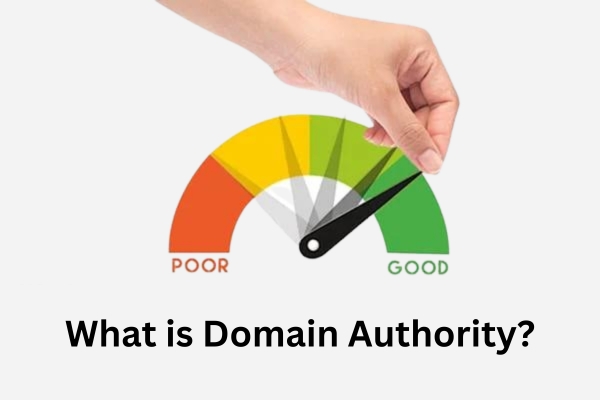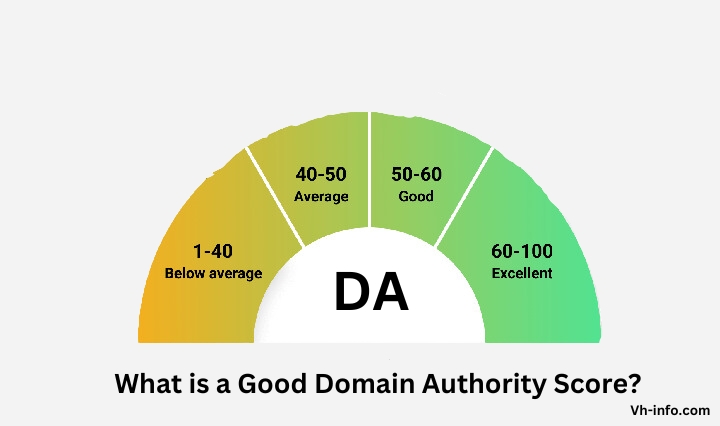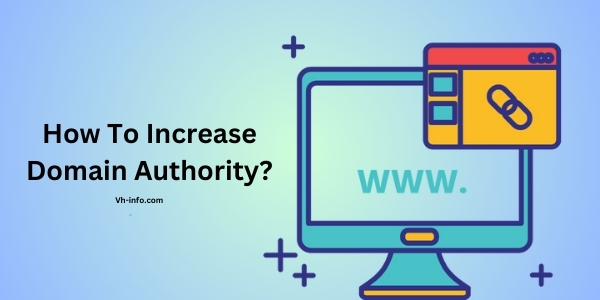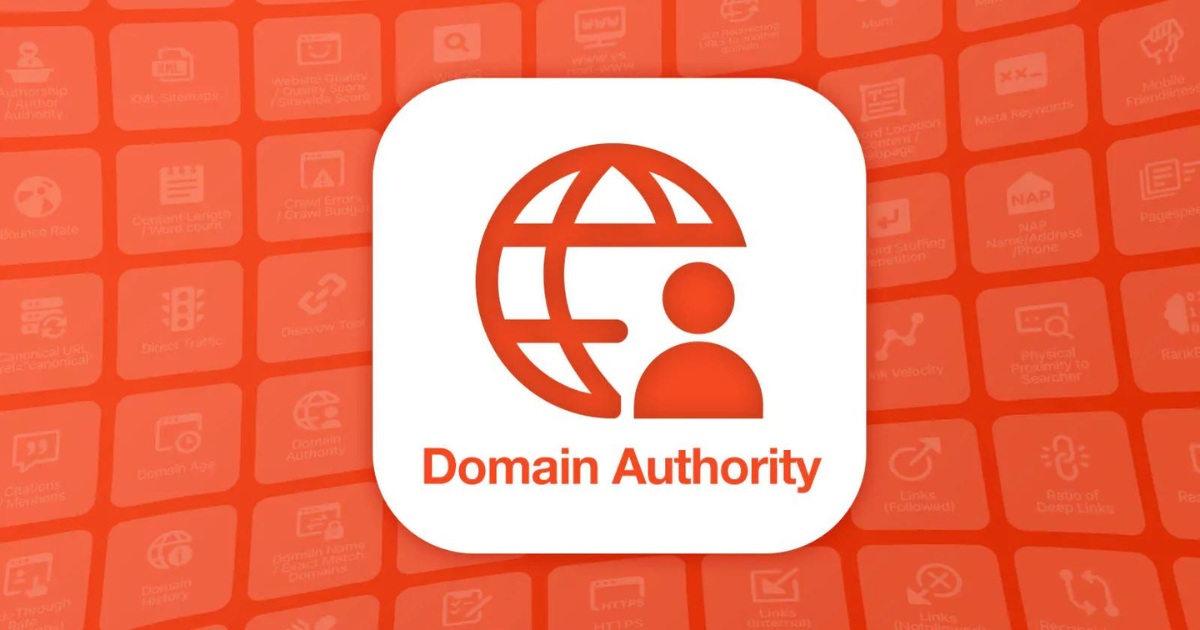Domain authority (DA) is a key metric that digital marketers and SEO professionals use to gauge a website’s overall authority and ability to rank in search engine results.
Developed by Moz, domain authority scores range from 1 to 100, with higher scores indicating greater authority. Boosting your DA score can lead to better keyword rankings, more organic traffic, and SEO success.
In this comprehensive guide, we’ll explain what domain authority is, why it matters, and share actionable tips to increase your site’s DA fast.
What is Domain Authority?

Domain authority is a search engine ranking score that predicts how likely a website is to rank in search engine result pages (SERPs). It’s a comparative metric, meaning your domain authority score is relative to other sites. DA is calculated by evaluating multiple factors, including the quantity and quality of inbound links, or backlinks, pointing to a website. The domain authority scale ranges from 1 to 100, with higher scores corresponding to a greater ability to rank.
What Supports Domain Authority as a Metric?
While domain authority is not an official Google ranking factor, studies have found a strong positive correlation between DA and SERP rankings. Websites with a high DA tend to rank better and get more organic traffic than those with a low DA score. Domain authority provides a quick way to assess the strength of a website’s backlink profile and overall SEO performance. It’s a useful metric for benchmarking your site against competitors and tracking the impact of your SEO efforts over time.
What is a Good Domain Authority Score?

Generally, sites with a domain authority of 50+ are considered good, while 60+ is excellent. However, what constitutes a “good” DA varies by industry and competitive landscape. A new website will always start with a domain authority score of 1 and will increase over time as it gains quality backlinks.
How is Domain Authority Calculated?
Domain authority is calculated using a machine learning algorithm that evaluates the quantity and quality of a site’s entire backlink profile. Moz’s domain authority metric takes into account many factors, including the domain authorities of linking sites, the number of linking root domains, the total number of links, and more. The algorithm also identifies patterns that best correlate with rankings so that the DA score closely aligns with actual Google search results.
How Can I Check My Site’s Domain Authority? How Much Should I Track it?
You can easily check your website’s domain authority for free using Moz’s Link Explorer tool. Simply enter your URL, and the tool will display your current domain authority score along with other link metrics like page authority (PA) and the number of linking domains. Many other SEO tools like Ahrefs, SEMrush, and Majestic also provide their own versions of domain authority or domain rating scores.
Since domain authority is a comparative, logarithmic metric, it’s best to check your score about once per month. Moz updates DA scores on a monthly basis. Checking too frequently won’t be as insightful since your score is unlikely to change drastically in a short period.
However, checking each month can help you track your progress and see how your link building and other SEO efforts are impacting your site authority over time.
Why Should I Care About Domain Authority?

Improving your domain authority should be a key goal of your SEO strategy for several important reasons:
Domain Authority Correlates With Higher Rankings
While not a direct Google ranking factor, DA has been shown to have a strong positive correlation with higher keyword rankings and organic search traffic. Sites with high DA tend to outrank those with lower scores.
Domain Authority Provides a Quick Insight into a Site’s Backlinks Profile
Your domain authority score offers a fast way to gauge the overall quantity and quality of your website’s inbound links. A strong backlink profile from high DA sites will boost your own site’s authority.
Domain Authority Can Help Assess Your Competition
You can use DA to analyze the link profiles of your search competitors and find opportunities to gain an edge. Comparing your site’s DA to similar sites in your niche helps determine where you stand and how much work is needed to outpace the competition.
Domain Authority Can Track Your SEO Progress And Efforts Over Time
Measuring your domain authority score on a monthly basis is an effective way to monitor the impact of your link building campaigns and overall SEO initiatives. Watching your DA increase over time shows your hard work is paying off.
How To Increase Domain Authority?

Improving your domain authority requires a comprehensive, long-term SEO approach that focuses on both on-page and off-page optimization. Here are some of the most effective ways to boost your DA score:
Improve The Off-Page SEO of Your Website
Off-page SEO refers to activities done outside of your own website to impact your rankings, primarily link building. Acquiring high-quality backlinks from authoritative, relevant websites is the best way to increase domain authority. Focus on tactics like guest blogging, broken link building, and creating linkable assets to earn inbound links naturally.
Optimizing On-Page SEO
On-page SEO involves optimizing individual web pages to rank higher in search results for target keywords. Best practices include crafting compelling title tags and meta descriptions, using header tags appropriately, optimizing images, and improving the page’s overall content quality and relevance.
Ensure Your Website is Mobile-Friendly
With Google’s mobile-first index, having a mobile-responsive site is non-negotiable. Use Google’s Mobile-Friendly Test tool to check your pages and get specific recommendations for improvement. Delivering a seamless mobile user experience will help boost your DA.
Increase Page Speed
Page speed is known Google ranking factor, so faster loading times can indirectly improve your DA by helping your pages rank higher. Compress images, minify code, leverage browser caching, and consider using a content delivery network (CDN) to improve site speed.
Publish High-Quality Content
Creating in-depth, valuable content that matches search intent is key for earning quality links and boosting authority. Conduct keyword research to find topics your audience is searching for, then craft comprehensive resource guides, blog posts, infographics, and other linkable assets that will naturally attract inbound links.
Social Media Engagement
While social signals don’t directly impact domain authority, they can indirectly influence DA by increasing visibility and making your content more likely to earn backlinks. Share your content across social media channels and engage with your audience to amplify reach.
Increase Your Social Signals
Social signals refer to the likes, shares, and overall visibility your content receives on social media platforms. While not a direct ranking factor, generating social signals can indirectly boost DA by driving more traffic and increasing the likelihood of earning natural links from your content being shared.
How To Increase Your Domain Authority Score in 30 Days?

Want to give your DA score a relatively quick boost? Follow these steps to increase your domain authority in as little as one month:
Step1: Create High-Quality Engaging Content
Publish several pieces of in-depth, keyword-optimized content that align with your target audience’s search intent. Make these resource guides, ultimate lists, or long-form blog posts comprehensive and valuable enough to serve as linkable assets.
Step 2: Link Audit
Use a backlink analysis tool to conduct a thorough link audit of your site’s current backlink profile. Identify any low-quality or spammy links that could be dragging down your DA score.
Step 3: Spammy Backlink Removal
Reach out to the owners of any spammy or low-quality sites linking to you and request removal of the links. This helps clean up your link profile and improve your overall domain authority.
Step 4: Disavow Toxic Backlinks
For any remaining toxic backlinks you couldn’t get removed, use Google’s Disavow Tool to disavow them. This tells Google to ignore these links so they don’t negatively impact your site’s authority.
Step 5: On-page SEO Audit
Conduct a comprehensive on-page SEO audit of your website using a tool like Screaming Frog. Identify any issues with title tags, meta descriptions, header tags, image optimization, keyword usage, and other on-page elements.
Step 6: Technical SEO Audit
Assess your site’s technical SEO health by checking for issues like crawl errors, duplicate content, broken links, redirect chains, and site speed. Use Google Search Console and other webmaster tools to uncover any technical problems.
Step 7: Fix On-page and Technical Issues
Resolve all the on-page and technical SEO issues uncovered in your audits. Optimize your title tags, meta data, header tags, and content. Fix any broken links, redirects, or other technical problems. Improving the optimization and usability of your site will give your DA score a boost.
Step 8: Start Link Building Activities
Kick off link building campaigns to secure high-quality, relevant inbound links. Focus on tactics like guest blogging, broken link building, and promoting your linkable assets to acquire links naturally. VH Info’s premium link building services can help you develop an effective strategy.
Step 9: Create Outreach Content
Develop valuable content designed for outreach, such as infographics, original research, ultimate guides, and useful templates. Promote these assets to relevant sites in your niche to earn quality backlinks and increase your domain’s authority.
Step 10: Share Content Via Social Media
Amplify your content’s reach by sharing it across your social media channels. Encourage engagement and shares to generate more visibility and drive traffic back to your site, increasing the likelihood of earning natural inbound links.
Step 11: Repeat Link Building and Content Strategy
To keep your domain authority trending upward, repeat your link building and content creation efforts. Publishing great content and acquiring quality links should be an ongoing process for continual gains in authority.
How Do You Integrate Your Domain Authority into Your SEO Strategy?
Improving your domain authority should be a central goal of your overall SEO strategy.
Integrate DA into your SEO approach by:
- Regularly checking your domain authority score each month to track progress
- Analyzing competitors’ DA to find opportunities to outperform them by acquiring more quality links
- Focusing content creation efforts on developing linkable assets that will attract inbound links
- Prioritizing link building tactics to earn links from high DA sites in your niche
- Monitoring your backlink profile to ensure it remains natural and high-quality
- Conducting periodic link audits and disavowing any toxic links to maintain a strong profile
- Continuing to publish great content and acquire quality links to trend your DA score upward over time
Page Authority vs. Domain Authority
When looking at authority metrics, it’s important to understand the difference between Page Authority (PA) and Domain Authority (DA):
Page Authority (PA)
Page Authority predicts an individual page’s ability to rank in search results. PA scores also range from 1 to 100, with higher scores meaning greater ability to rank. Page Authority is based on data from the Mozscape web index and includes link counts, MozRank, MozTrust, and other factors. It’s a useful metric for determining the ranking strength of a single page.
Domain Authority (DA)
Domain Authority predicts a website’s overall ability to rank in search results. DA scores range from 1 to 100, with higher scores corresponding to greater ranking ability. Domain Authority is calculated by evaluating multiple factors, including linking root domains and the total number of links, into a single score. DA is a useful metric for comparing the ranking strength of entire websites or domains against each other.
FAQ’s:
How Can I Raise My Domain Authority?
You can increase your domain authority by acquiring high-quality inbound links from authoritative websites, improving your on-page and technical SEO, creating valuable content that attracts links naturally, and using social media to amplify your content’s reach.
What Types Of Websites Have The Highest Domain Authority?
Websites with the highest domain authorities tend to be well-established, reputable sites that have acquired many quality inbound links over time. Examples include major publications, government and educational websites, and popular industry blogs.
Does Google Look At Domain Authority?
Google does not use domain authority as a ranking factor, as DA is a metric developed by Moz, not Google. However, DA can be used to predict how well a site will perform in search results, as it encompasses many of the factors Google does consider important, like inbound links and site authority.
How Fast Can You Increase Domain Authority?
How quickly you can increase your domain authority depends on factors like your site’s current authority, the competitiveness of your niche, and the aggressiveness of your SEO efforts. By implementing the steps outlined above, you may start to see DA gains in as little as a month, with more substantial increases accruing over time.
How Do You Lose Domain Authority?
A website’s domain authority can drop for several reasons, including losing inbound links, acquiring toxic backlinks from spammy sites, or getting outpaced by competitors who are acquiring links faster. Significant drops in DA may also occur if a site is impacted by a Google penalty or algorithm update.
Are There Other Measures Of Domain Authority?
Yes, other SEO tools have their own versions of domain authority. For example, Ahrefs uses Domain Rating (DR), and Majestic has Citation Flow and Trust Flow. Each of these metrics evaluates a website’s backlink profile and predicts ranking ability in a slightly different way.
Conclusion
Improving your domain authority is essential for SEO success. By focusing on acquiring high-quality inbound links, optimizing your on-page and technical SEO, creating linkable content assets, and leveraging social media, you can boost your DA score and secure higher keyword rankings.
Use tools like Moz’s Link Explorer to track your progress and evaluate your competition. With consistent effort and the right strategy, you can increase your site’s authority and organic traffic.
VH Info’s premium link building services can help you develop a customized plan to improve your DA fast.

